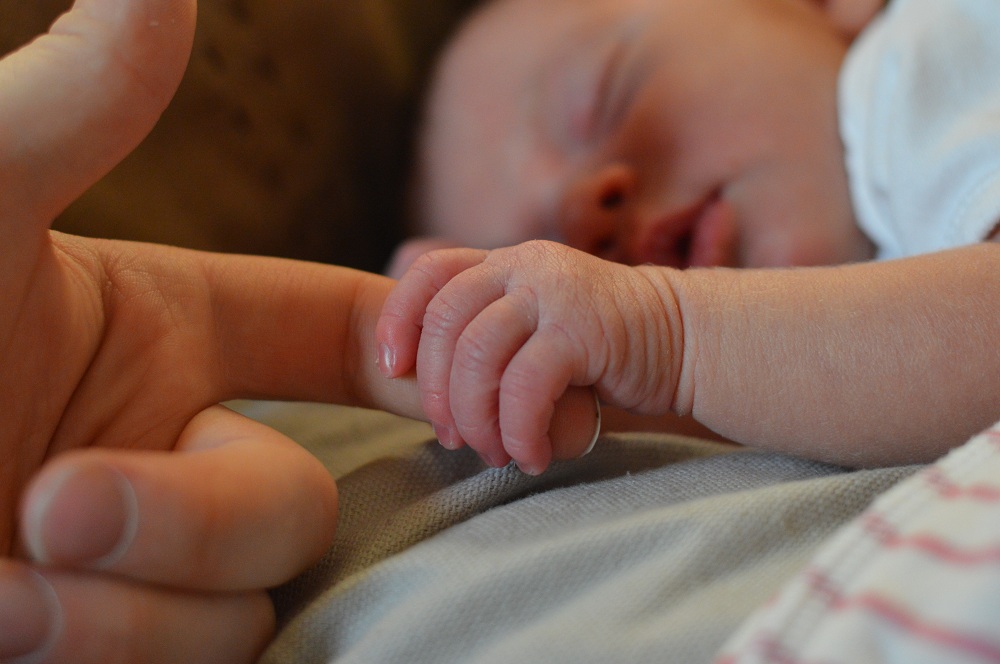As a parent, it can be overwhelming to think about how to care for a newborn baby. There is much to consider, from feeding and sleeping schedules to potty training and developmental milestones! Fortunately, with helpful tips and tricks, you can ensure your little one has everything they need to thrive.
This article will cover essential baby care tips every new parent should know. From preparing for your baby’s arrival to caring for their daily needs, here are some helpful tips on ensuring your newborn is happy and healthy.
List of Top 25 Babycare Tips for Parents
For Baby’s Comfort
1. Prepare the nursery.
Stocking up on diapers, wipes, and other essentials like bedding and changing pads can help ensure the nursery is ready for your little one. Many parents also like to purchase cribs and bassinets before the baby arrives. These items can help you care for babies just a few months old, many of which can be used until your child is a toddler. Look for ones with adjustable heights and other safety features like breathable mesh.
2. Buy some newborn clothes and soft items.
Clothes are one of the essential newborn care basics you’ll need. Make sure to buy onesies, socks, and other clothing items in the appropriate size for your newborn. Soft items such as blankets and stuffed animals are also great additions to their nursery. Items with special meaning, like blankets knitted by a family member, make for great keepsakes. Just make sure all items are safe for the baby!
3. Sleep near your baby.
While most parents fear the dangers of co-sleeping, they can help you bond with your baby. One of the benefits of co-sleeping with your baby is that it can help reduce stress and crying. Babies can also identify their parents’ scent and feel comforted by their presence. You may set up their crib next to your bed or sleep in the same room to help newborns feel secure.
For Baby’s Health
4. Check their temperature often.
Checking your baby’s temperature is an essential part of newborn care. It can be challenging to tell if a baby has a fever, so purchase a digital thermometer to help you keep track of their temperature. If your infant’s temperature is above 100.4 degrees Fahrenheit, they may have a fever and need to be seen by a doctor. You may also want to place a thermometer in their nursery as an extra precaution.
5. Monitor their breathing.
Make sure you keep an eye on your newborn’s breathing patterns. Typically, a baby should breathe about 20 to 30 times per minute. It’s essential to look out for strange noises or pauses in their breathing, as these could be signs of a severe health issue, such as sleep apnea. You should also be aware of rapid or difficult breathing, which can indicate infection or other medical conditions. Some parents also like to purchase a monitor that tracks their baby’s breathing patterns.
6. Keep their skin clean and moisturized.
Properly caring for your infant’s skin is one of the most important aspects of caring for babies. Many newborns have baby acne or eczema, which can cause skin irritation and discomfort. Use a gentle cleanser on their delicate skin, and always moisturize afterward. Keep their skin free of dirt and bacteria by changing their diapers regularly and following up with a moisturizing lotion or cream.
7. Keep up with their dental health.
Once your baby’s teeth come in, you must start caring for their oral health. Your baby’s teeth health can affect the health of their adult teeth, so it is important to begin practicing proper dental hygiene from day one. Clean your baby’s gums and teeth with a damp washcloth or soft toothbrush and water, but avoid using toothpaste until they’re at least two years old. Ask your pediatrician for advice on which products are best for your baby.
For Baby’s Feeding
8. Monitor their growth and weight gain.
It’s essential to regularly check your baby’s progress during the first few months of life. Your pediatrician will measure their height and weight at each doctor’s appointment, but you may also want to track their growth at home. You can measure their weekly length and weight with a baby scale. If your baby is not growing at the expected rate, talk to your doctor about any concerns.
9. Feed them frequently.
Babies need to be fed regularly, usually every two to four hours. Newborns can only handle small amounts at once, so frequent feedings are necessary to help them get nutrients. If breastfeeding, ensure you feed your baby on both sides during each session to ensure they get enough milk. If you’re feeding them formula, follow the instructions on the label. You may also want to invest in a bottle warmer and sterilizer to help feed your baby easier.
10. Monitor their intake.
It’s essential to track how much your baby eats and drinks daily. This can help you ensure they get enough nutrients and alert you to potential issues. Talk to your doctor if your baby is not eating or drinking as much as usual or seems lethargic. They can help you determine the cause of the issue and develop a plan to address it.
11. Watch for signs of allergies.

Babies can develop food allergies, so it’s essential to monitor your newborn for any signs that they may be allergic to certain foods. Common signs of food allergies are vomiting, rash, hives, and difficulty breathing. Contact your doctor immediately if you notice these symptoms after you’ve fed them.
12. Know when to give them food to chew.
Once your baby can sit up independently, or around eight months of age, they are ready to start exploring solid foods. Start with soft foods such as mashed potatoes, pears, bananas, and avocado that can easily be mashed between their tongue and gums. As they become more comfortable chewing, you can introduce them to harder foods like crackers and lightly steamed vegetables.
For Baby’s Hygiene
13. Change their diapers regularly.
Diaper changes are an essential part of caring for a newborn baby. Check your infant’s diaper every two to three hours and change it as soon as it gets wet or soiled. Diapers designed explicitly for newborns can help keep your baby clean and comfortable. Look for brands that are hypoallergenic and contain no harsh chemicals or fragrances. You may also consider using cloth diapers, which can be more cost-effective and environmentally friendly.
14. Bathe them regularly.
It’s important to bathe your newborn at least once a week, but more often if they live in a warm climate or have oily skin. Make sure to use products for newborns, such as hypoallergenic soaps and shampoos. Many parents find it helpful to use a baby bath seat or tub for extra support. Also, never leave your baby unattended in the bathtub—even for a few seconds. You can make the process easier by having all the necessary supplies within easy reach.
15. Trim their nails regularly.
Baby nails can grow quickly, so it’s essential to trim them often to prevent them from scratching their delicate skin. Make sure to use a pair of baby nail clippers or scissors specifically designed for infants and small children. If you’re uncomfortable trimming their nails, consider asking your doctor to do the job. They can also guide you on how to trim your baby’s nails safely.
16. Massage them with oil.
Massaging your infant can help them feel relaxed and improve their overall health. Use a few drops of baby oil to gently massage their legs, arms, and torso using circular motions. This can also help stimulate their circulation and boost their growth development. Plus, it’s an excellent way for parents to bond with their babies. Make sure you always massage your baby in a warm, comfortable environment.
For Baby’s Safety

17. Learn about baby-safe products.
Many products are unsuitable for babies, and it’s important to know what is safe before bringing a newborn home. Be sure to research any household products you intend to use, and be sure they are labeled baby-safe. This includes items like detergents, lotions, shampoos, and soaps. You may also want to look into specific products designed for babies. For one, baby monitors can help you keep an eye on your infant while they sleep.
18. Follow proper infant car seat safety guidelines.
Car seat safety is essential when it comes to caring for babies. Ensure your baby’s car seat meets safety standards and adequately fits your vehicle. Never leave your baby unattended in the car; ensure their straps are fastened correctly before driving. Also, never put the car seat in the front seat, as this could put your baby at risk of airbag-related injuries.
19. Don’t shake your baby.
Shaking a baby can cause severe neurological damage, so handle them carefully. Although this should be common knowledge, it can be easy to forget in times of stress. If you need a break, put your baby down in a safe spot and take a few moments to collect yourself. Don’t forget that it’s normal to feel overwhelmed, and seeking help is nothing to be ashamed of.
20. Secure everything.
Babies are curious and often want to explore their surroundings, so securing every room in your home is essential. Keep all doors, windows, and drawers closed and any hazardous items out of reach. Install safety devices like outlet covers, baby gates, and window guards to keep your infant safe. You may also want to childproof any hazardous items in your home, such as cleaning supplies or medications.
For Baby’s Development
21. Talk to them and read books often.
For newborns, talking and reading are key components of developing language. Talk to them regularly, even if they can’t understand your words. Reading books is also a great way to bond with your baby and help them learn new words. You can use different voices for each character and rhymes or sing-alongs to engage them.
22. Make sure they get plenty of tummy time.
Tummy time is a great way to help babies develop their neck, shoulder, and back muscles. Place your baby on their stomach several times a day for short periods of time to encourage movement. You can also place toys in front of them to keep their interest and help them learn how to reach for objects. Just make sure to stay nearby in case they need your help.
23. Stimulate their senses.
Babies are naturally curious and always looking to explore the world around them. You can help stimulate their senses by playing with toys and introducing them to bright colors and shapes. Music, dancing, and storytelling can also help improve their cognitive skills.
24. Monitor their developmental milestones.
Of course, you should always talk to your pediatrician about your child’s development. Track their progress through the various milestones, such as crawling and walking, to ensure they progress at the correct rate. If you have any concerns, your doctor can provide advice and resources to help your baby reach their milestones.
25. Provide them with plenty of love and affection.
The most important baby care tip is to give your newborn plenty of love and affection. Babies must be held and cuddled, so take time out of your day for memorable bonding moments with your little one. Show them how much you love them and ensure they feel secure in your care. You’re their world, so be sure to let them know!
Bottomline
Caring for a newborn baby can be very overwhelming, but you can take steps to make it easier. With the right information and preparation, you can help ensure your infant has a safe and happy start to life. Follow the tips above and have faith in yourself, as you’re sure to be a great parent! Always ask your doctor for any questions or concerns about newborn care. They can provide valuable advice and help ensure your baby is healthy and happy.

